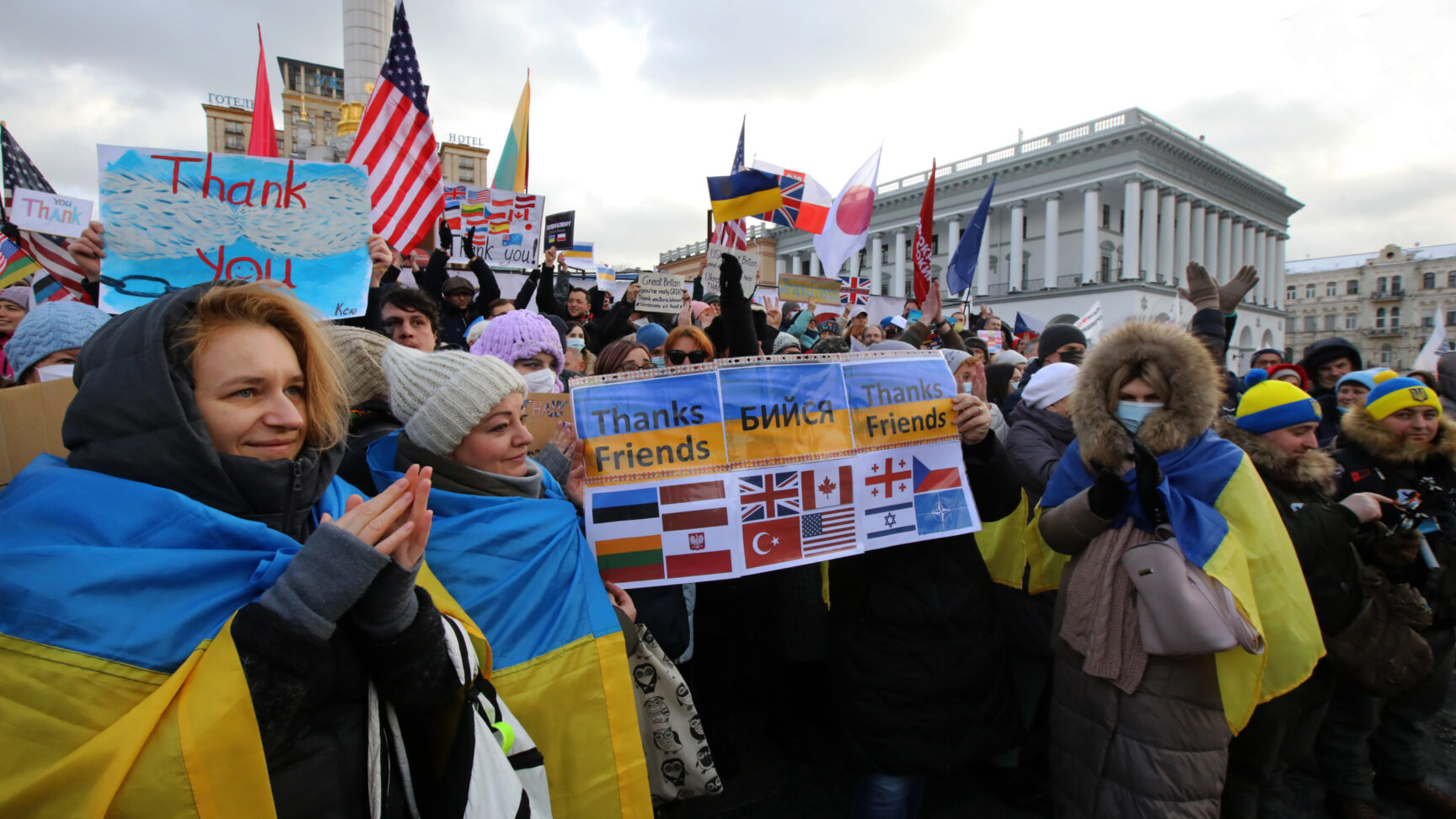
The crisis of European security: What Europeans think about the war in Ukraine
Europeans are united around three key ideas about the war in Ukraine. The crisis will likely test their readiness to defend the European security order
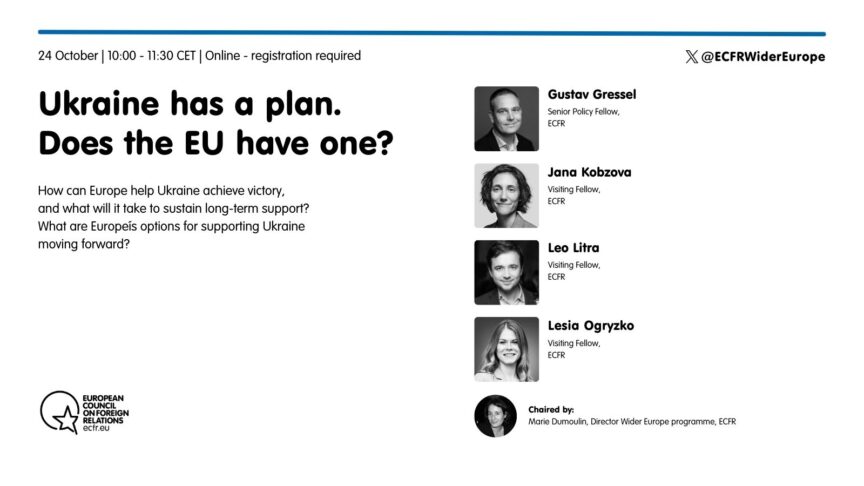
Nearly three years into the full-scale war, Ukraine has shown remarkable resilience and adaptability to counter Moscow’s relentless attacks. Now, President Zelensky has unveiled Ukraine’s…
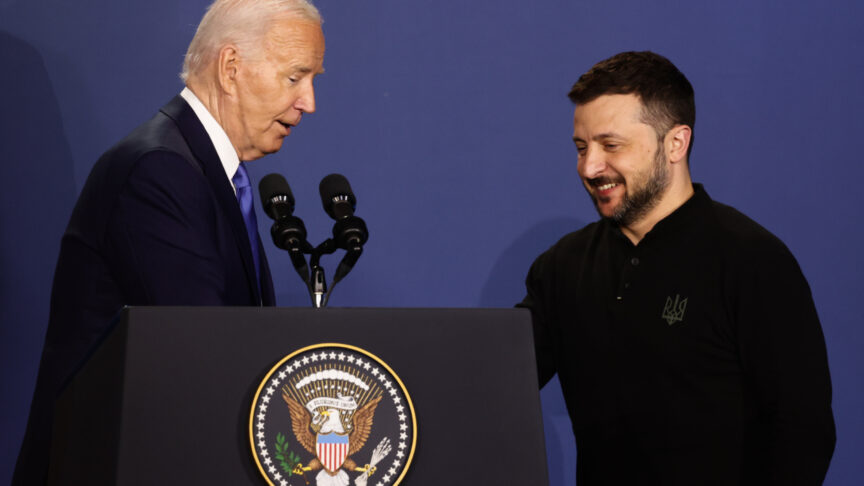
In besieged Kharkiv, I saw how Ukraine is approaching a perilous moment. To turn the tide, it first needs to decisively knock back Russia
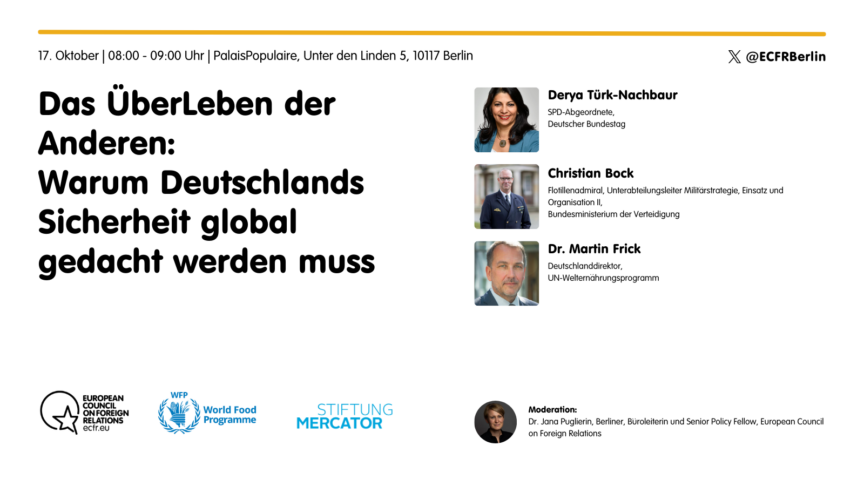
Konflikte in Gaza, im Sudan und in der Ukraine, irreguläre Migration, Klimakrise und Extremismus: Die Welt wird von immer mehr gleichzeitig aufretenden Krisen erschüttert, die…
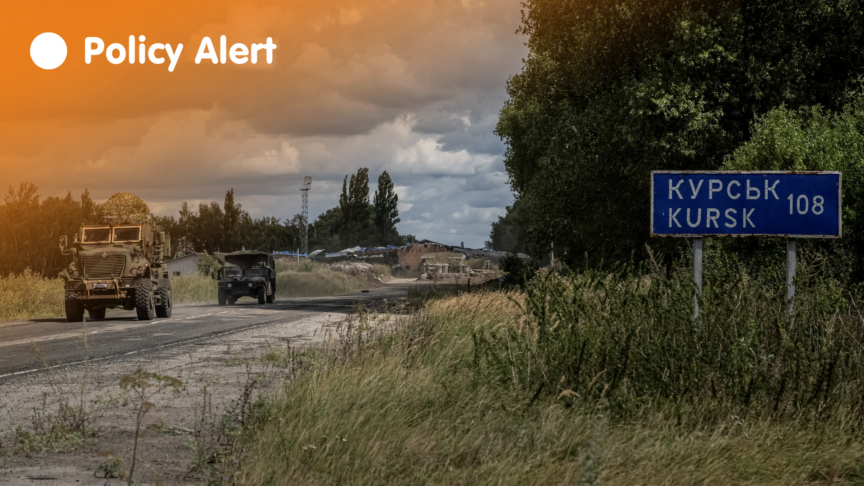
Ukraine’s audacious incursion into Russia’s Kursk region has changed the narrative of the war – and called Putin’s bluff on his so-called red lines
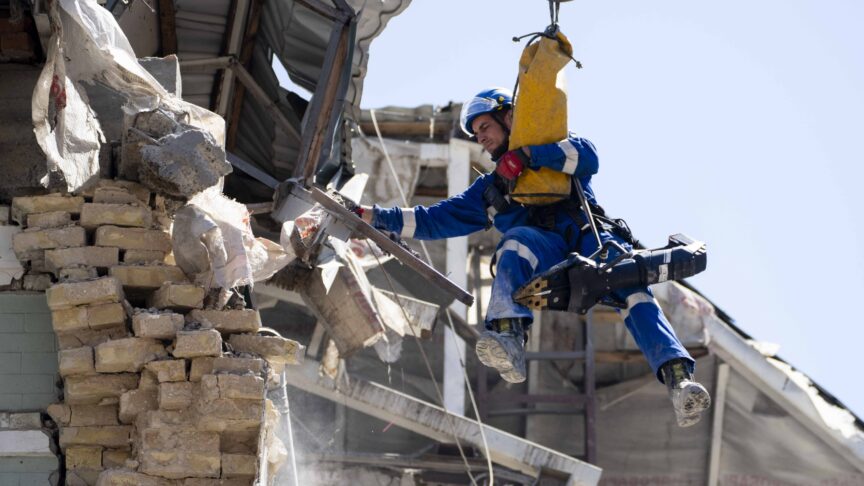
Secure air defences and freer weapons use would encourage Ukrainians to return home, protect energy supplies, and boost the economy
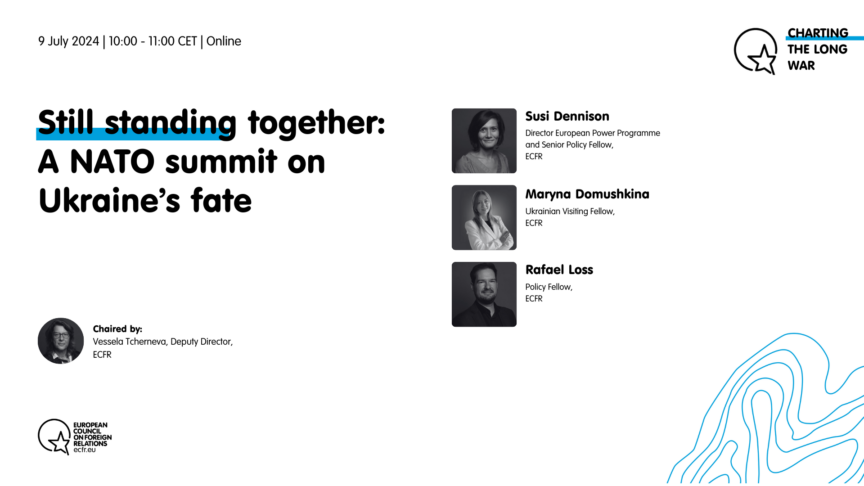
As leaders are about to take pivotal decisions for Ukraine’s fate at the NATO summit, join us for a discussion about pathways and policy options for…
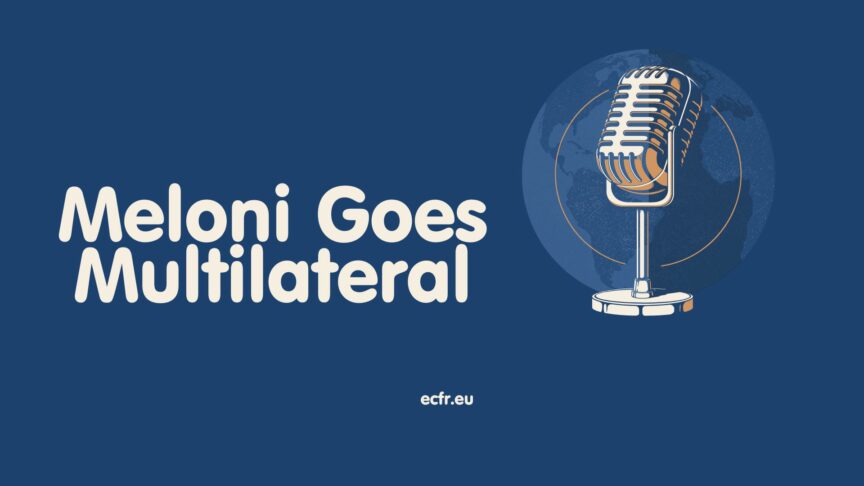
In the first big multilateral test for prime minister Giorgia Meloni, this mini-series will explore the four main priorities of Italy’s 2024 G7 presidency: Ukraine, AI, infrastructure, and Africa
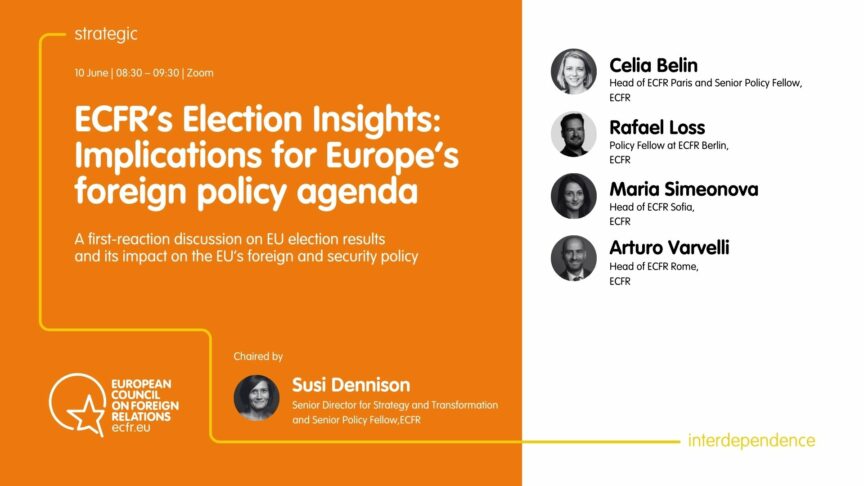
This webinar will provide a snapshot analysis of election results and their implications for Europe’s foreign policy and security agenda. Featuring perspectives from selected ECFR…
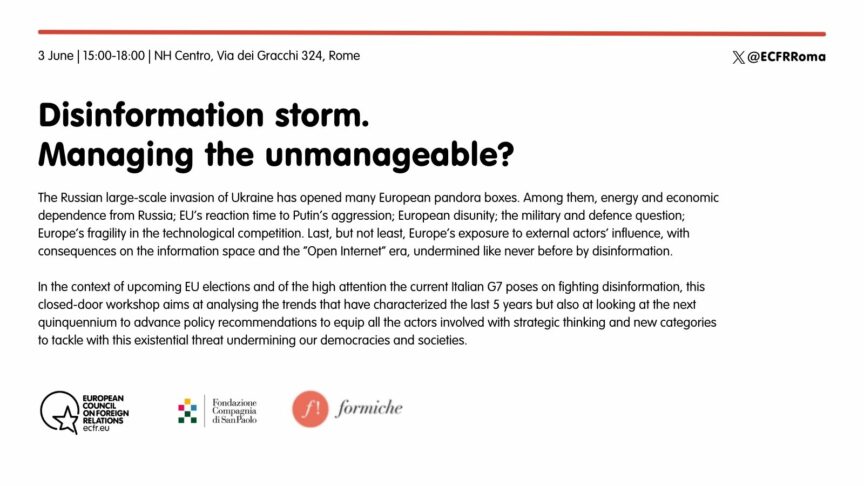
The Russian large-scale invasion of Ukraine has opened many European pandora boxes. Among them, energy and economic dependence from Russia; EU’s reaction time to Putin’s aggression; European disunity; the military and defense question; Europe’s fragility in the technological competition. Last, but not least, Europe’s exposure to external actors’ influence, with consequences on the information space and the “Open Internet” era, undermined like never before by disinformation

The Ukrainian world heavyweight boxing champion beat back a giant opponent, but his country can’t defeat Russia on its own
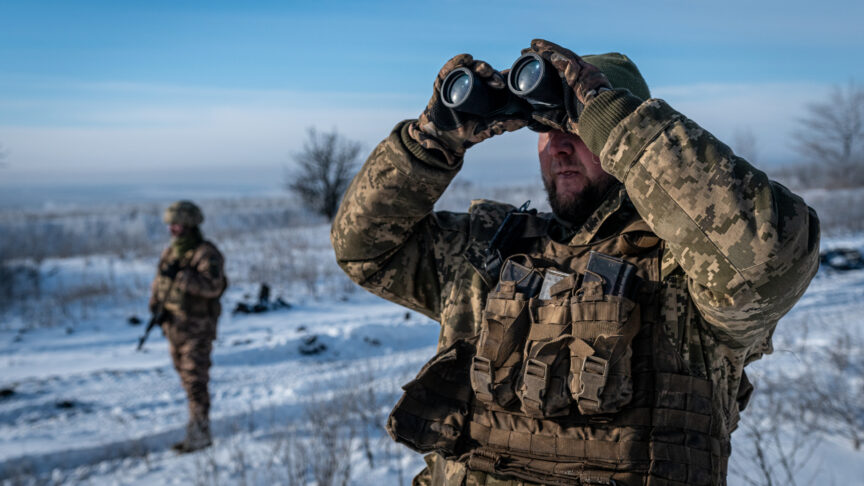
The Ukraine conflict is a war of attrition – that Russia is set to win. Europeans must act now to increase supplies, helping Ukraine not only survive, but prevail
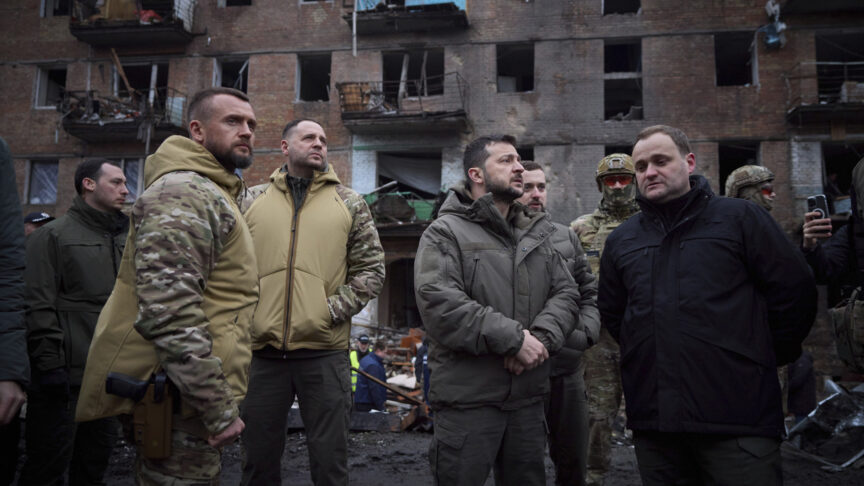
No clear postwar situation is likely to emerge in Ukraine. The country’s EU partners will have to help it reform during wartime
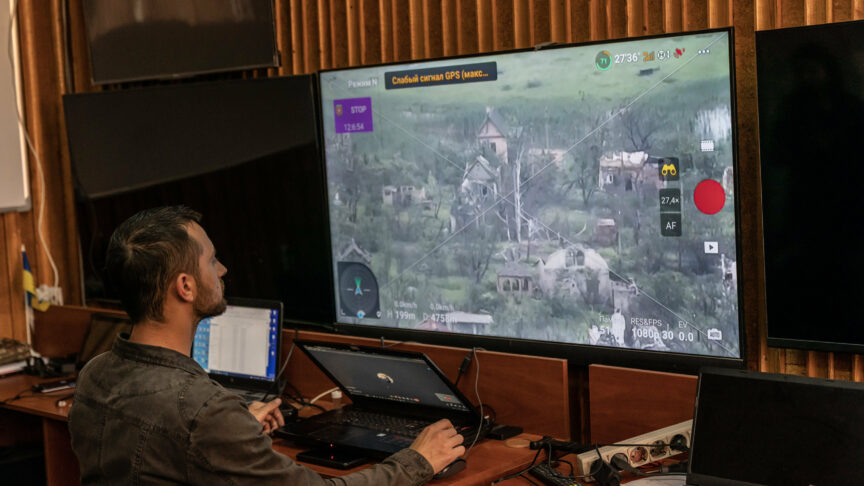
Russia’s war on Ukraine has featured many of the technological advances the world has made over the past decades. If Europeans are serious about their defence capabilities, they need to learn from this use of emerging technology on both sides of the war
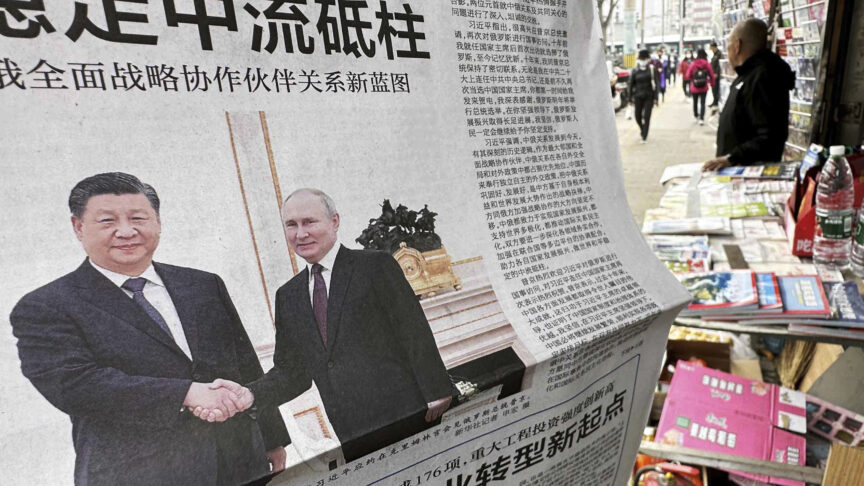
Chinese thinkers are drawing four key lessons from Russia’s war on Ukraine, informing their views on: America, Russia, Taiwan, and economic interdependence with the West
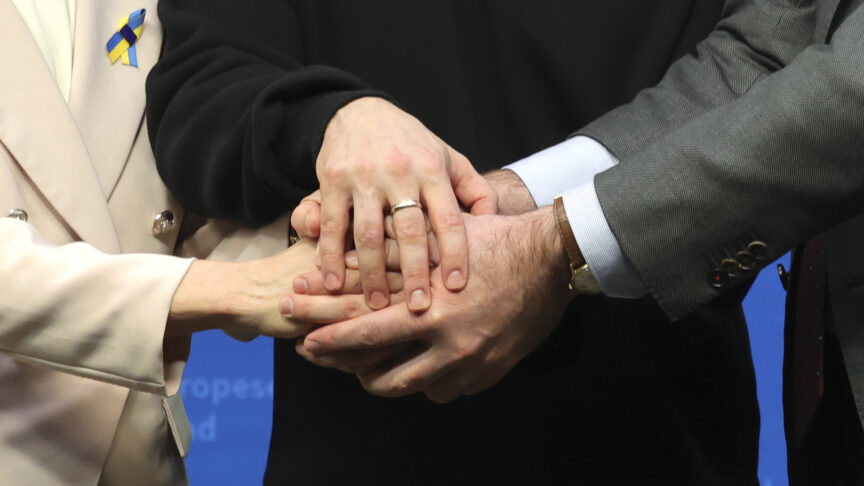
New polling for ECFR reveals the West is consolidating – while facing an increasingly post-Western world, in which powers such as India and Turkiye are readier than ever to act independently
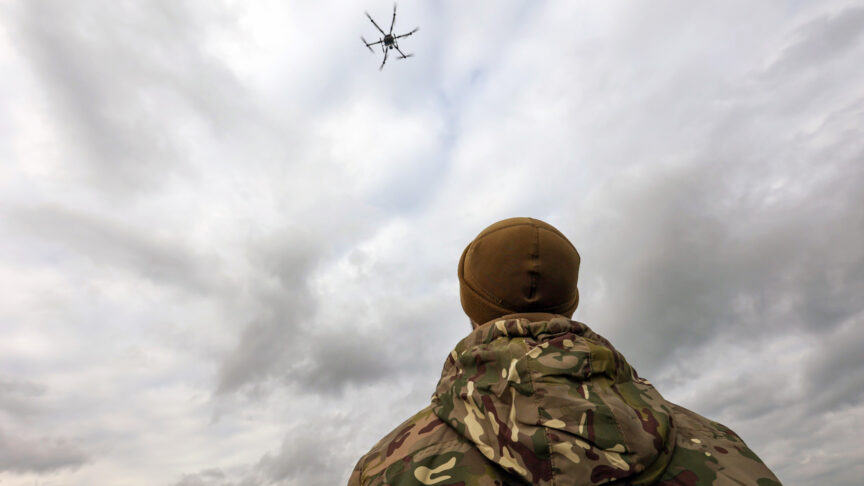
Ukraine has mounted an innovative response to Russian aggression in 2022. The rest of Europe can learn from this – but should continue to provide weapons and training in return
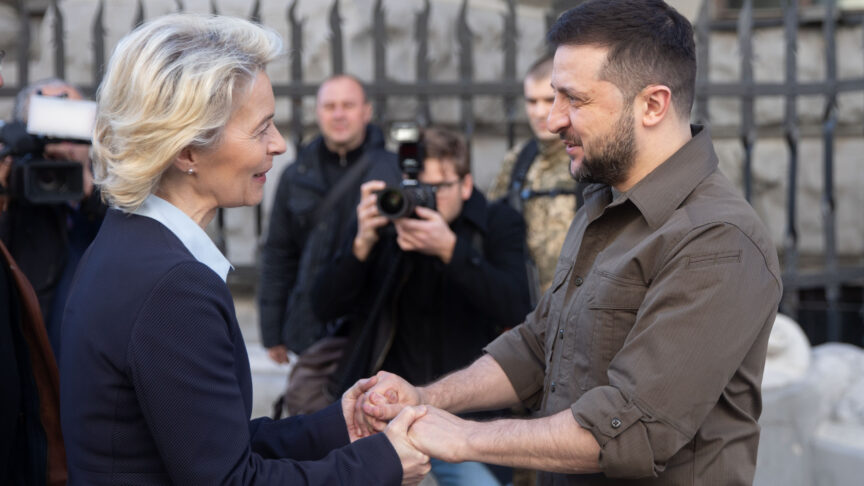
To signal their commitment to Ukraine, Europeans should agree a ‘long-war plan’ of assistance against Russian aggression. This would include a ‘security compact,’ security assurances, and economic and energy support
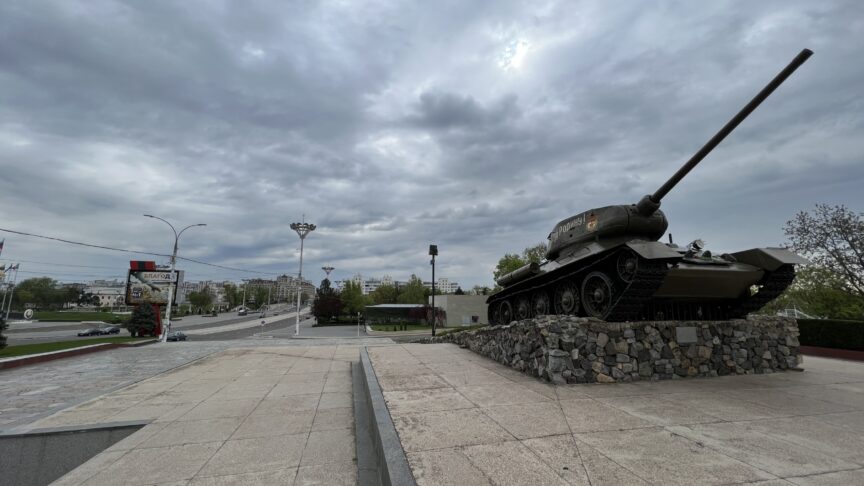
Russia could target Moldova by embarking on a limited-scope but overt military invasion – or by pursuing more covert hybrid aggression scenarios. Moldova and the EU need to embrace “active resilience” to address this
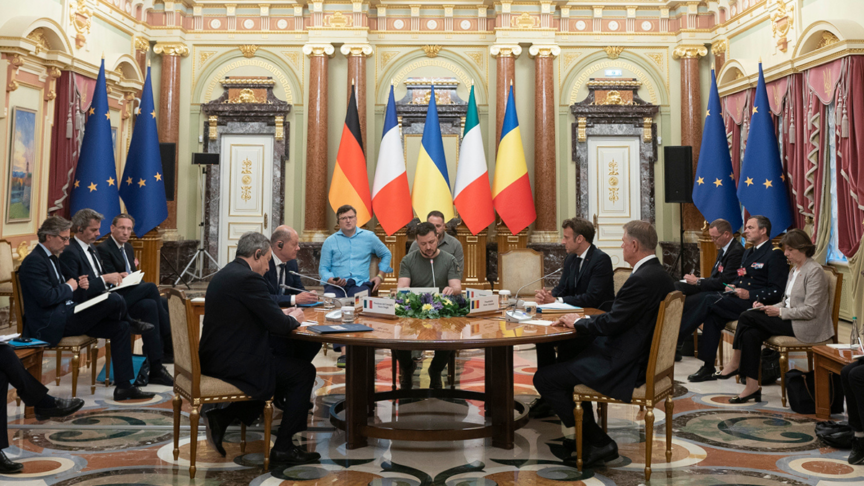
Russia’s war on Ukraine means the EU must devise a new approach to its neighbourhood. It should establish a Partnership for Enlargement that offers Ukraine and other states concrete steps towards deeper integration
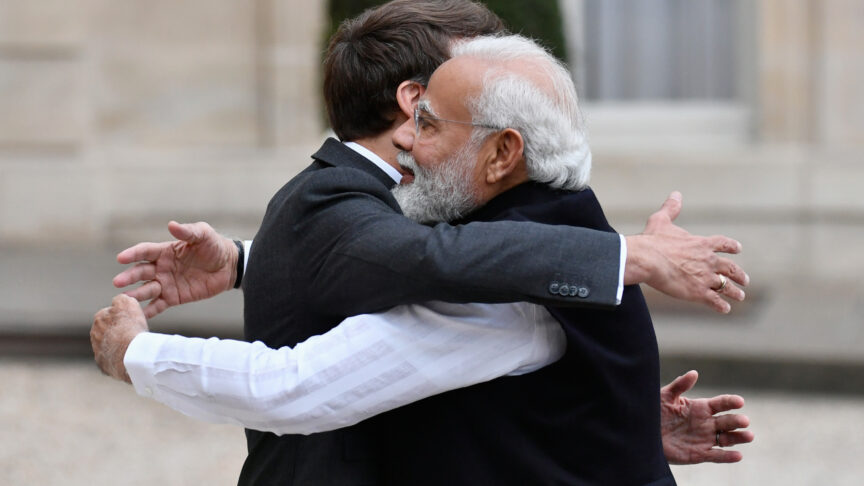
Europeans have found India’s position on the Ukraine war frustrating. But, although it is dependent on Russia for its arms, and has huge worries about China, India is actually moving inexorably closer to the West

In besieged Kharkiv, I saw how Ukraine is approaching a perilous moment. To turn the tide, it first needs to decisively knock back Russia

Ukraine’s audacious incursion into Russia’s Kursk region has changed the narrative of the war – and called Putin’s bluff on his so-called red lines

Secure air defences and freer weapons use would encourage Ukrainians to return home, protect energy supplies, and boost the economy

The Ukrainian world heavyweight boxing champion beat back a giant opponent, but his country can’t defeat Russia on its own
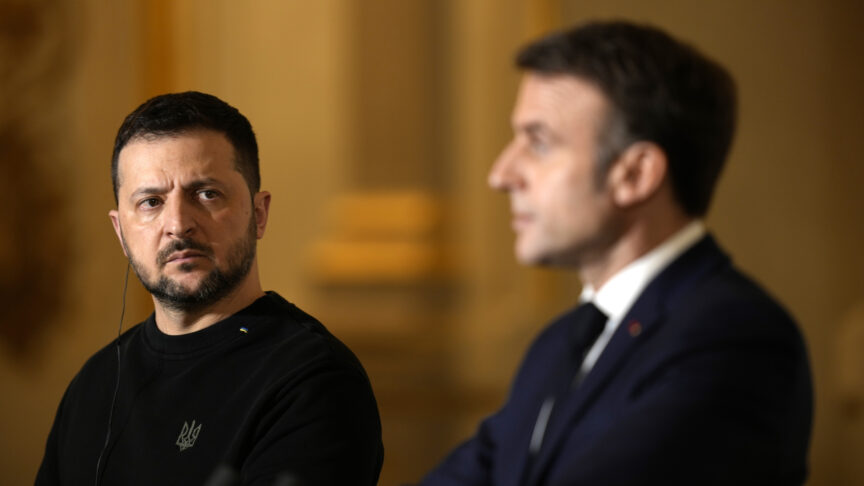
Bilateral security agreements send a clear and important signal of allies’ support for Ukraine. But to avoid hurting Ukraine in the long run, it is important to be clear about their limitations
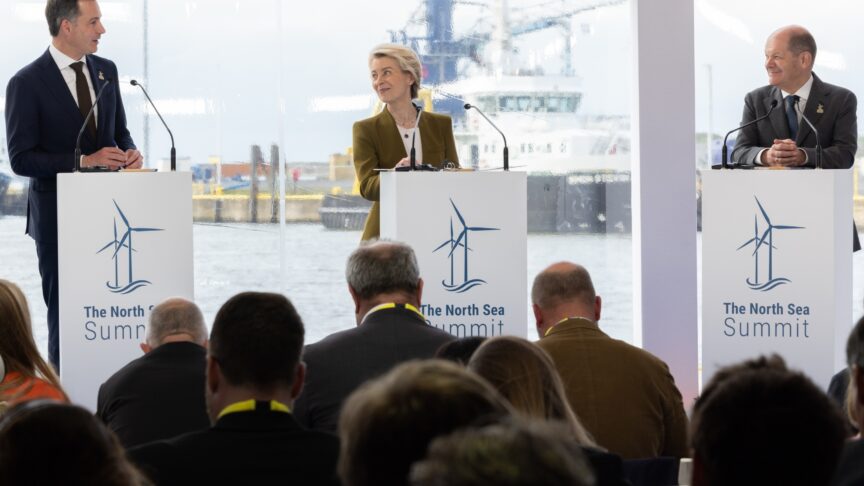
Since Russia’s invasion of Ukraine, the EU and its member states have intensified their energy diplomacy, moving away from Russian supplies and towards more secure – and greener – alternatives. But to do so efficiently, greater coordination at the EU-level is needed
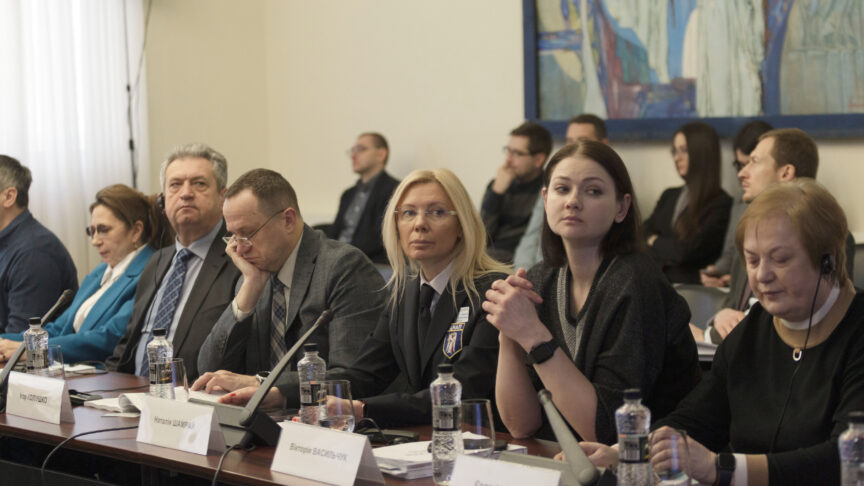
Away from Ukraine’s frontlines, its civil servants are leading the country towards EU membership – but huge reforms are needed if they are to be successful
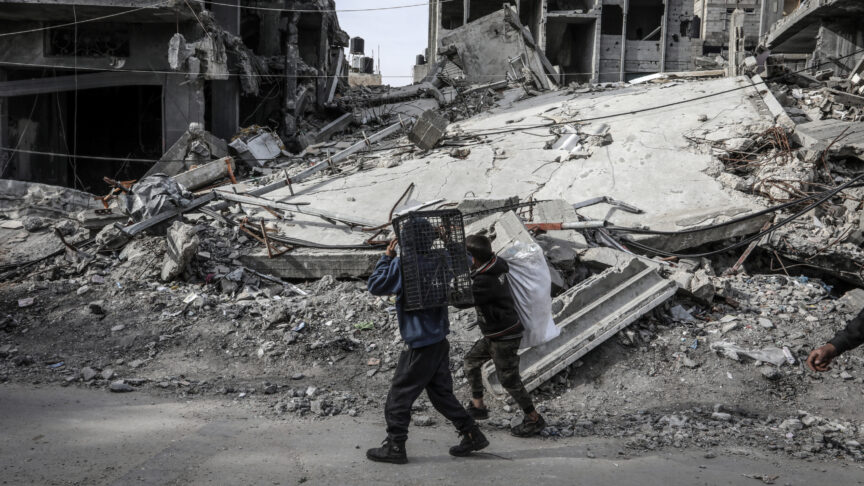
Europeans’ reputation as defenders of international law has cratered among their Arab partners. The first step is to recognise the problem
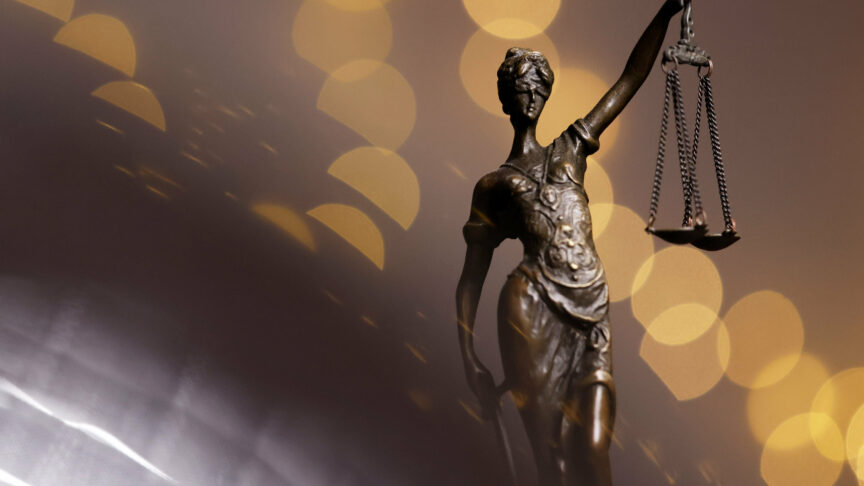
Ukraine’s Western allies are discussing the possibility of confiscating frozen Russian sovereign assets to support Ukraine’s reconstruction. But if confiscated during the war, these funds could provide desperately needed – and stable – financial support for Kyiv’s war effort
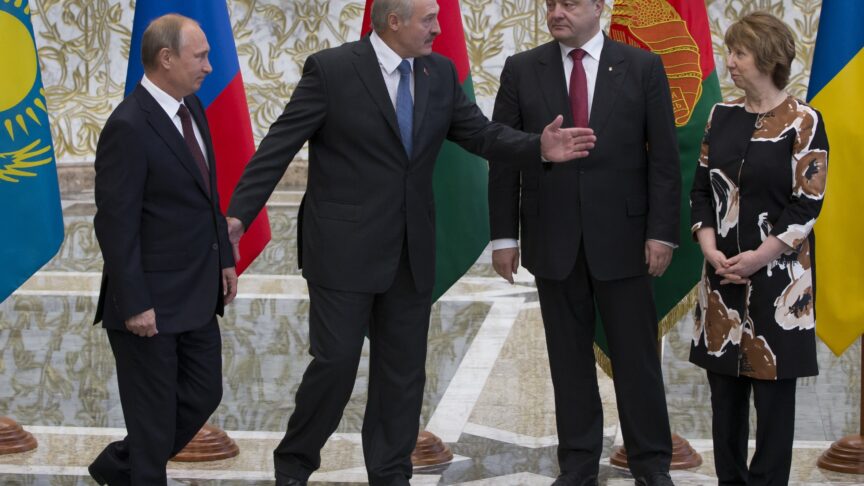
Western policymakers should study the lessons of the Minsk agreements – and drop any illusions about the ways in which Russia supposedly acts

In the first big multilateral test for prime minister Giorgia Meloni, this mini-series will explore the four main priorities of Italy’s 2024 G7 presidency: Ukraine, AI, infrastructure, and Africa

Mark Leonard welcomes Ivan Krastev to discuss how NATO membership can help Ukraine negotiate a durable peace

In this week’s episode, Jeremy Shapiro welcomes Michael Kofman and Gustav Gressel to discuss the military situation in Ukraine
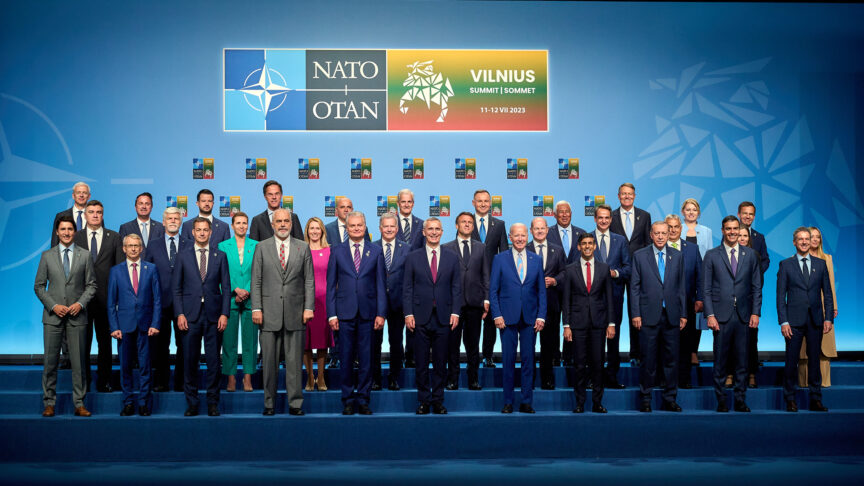
Mark Leonard is joined by Alex Stubb, Lykke Friis, and Camille Grand, to discuss the outcomes of the NATO summit in Vilnius.

Mark Leonard, Timothy Garton Ash, and Ivan Krastev discuss the main findings of ECFR’s latest opinion poll
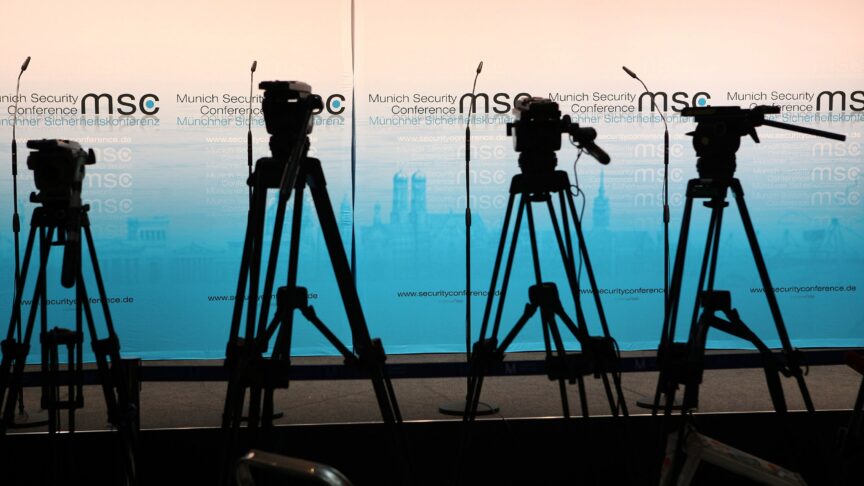
Mark Leonard reports live from the Munich Security Conference
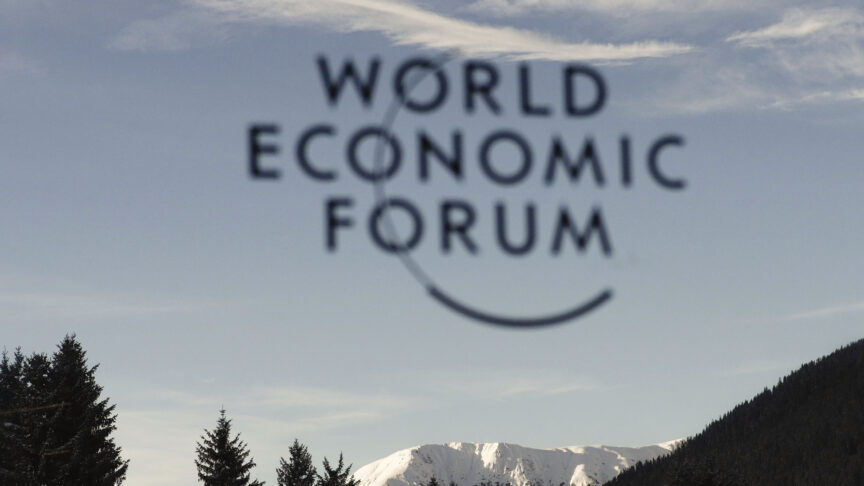
Mark Leonard and Alexander Stubb give us their take on this year’s World Economic Forum

Mark Leonard is joined by ECFR’s Piotr Buras, Gustav Gressel, Kadri Liik, and Jeremy Shapiro to describe and debate the potential military, security, and economic aspects of the long-war plan
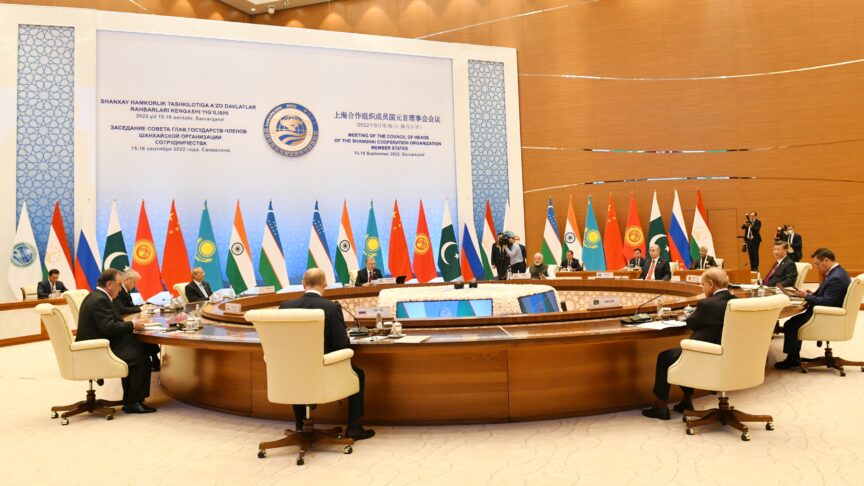
In this week’s episode, Jeremy Shapiro joins an all-star ECFR panel of experts to discuss the SCO summit’s geopolitical implications
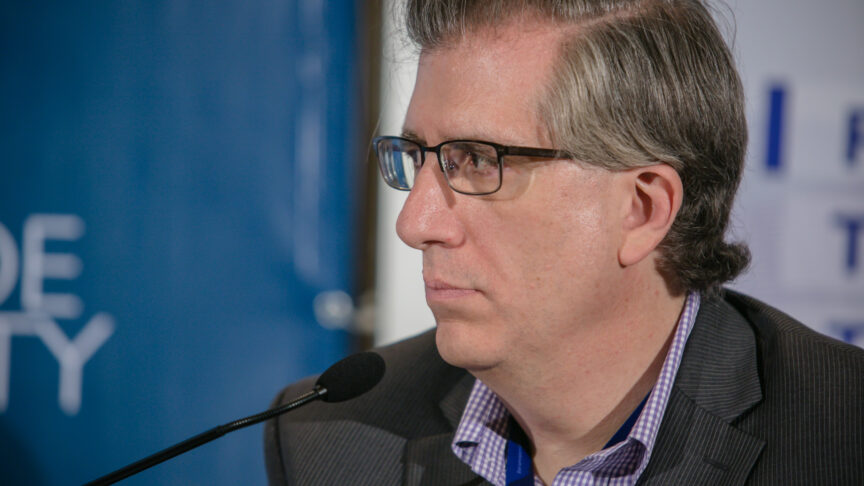
Leonard Benardo joins Mark Leonard to discuss the great challenges open societies are currently experiencing

Nearly three years into the full-scale war, Ukraine has shown remarkable resilience and adaptability to counter Moscow’s relentless attacks. Now, President Zelensky has unveiled Ukraine’s…

Konflikte in Gaza, im Sudan und in der Ukraine, irreguläre Migration, Klimakrise und Extremismus: Die Welt wird von immer mehr gleichzeitig aufretenden Krisen erschüttert, die…

As leaders are about to take pivotal decisions for Ukraine’s fate at the NATO summit, join us for a discussion about pathways and policy options for…

This webinar will provide a snapshot analysis of election results and their implications for Europe’s foreign policy and security agenda. Featuring perspectives from selected ECFR…

The Russian large-scale invasion of Ukraine has opened many European pandora boxes. Among them, energy and economic dependence from Russia; EU’s reaction time to Putin’s aggression; European disunity; the military and defense question; Europe’s fragility in the technological competition. Last, but not least, Europe’s exposure to external actors’ influence, with consequences on the information space and the “Open Internet” era, undermined like never before by disinformation
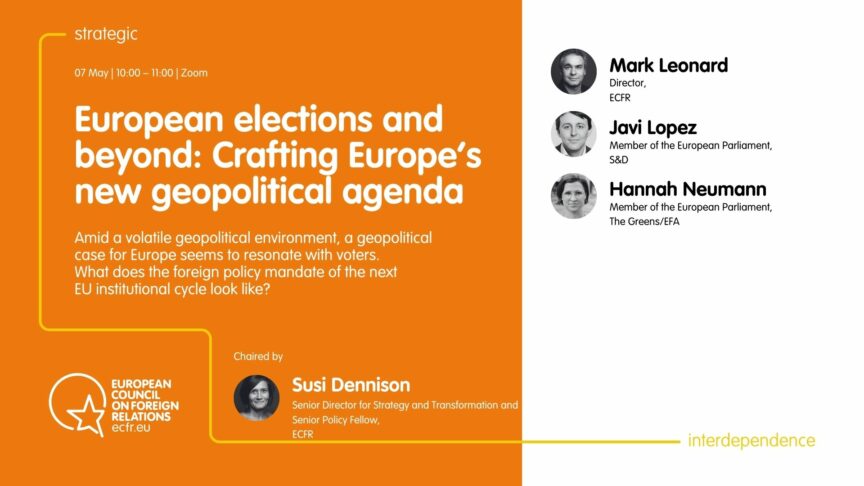
Amid a volatile geopolitical environment, ECFR’s recent public opinion poll ahead of the European elections shows that a geopolitical case for Europe resonates with voters,…
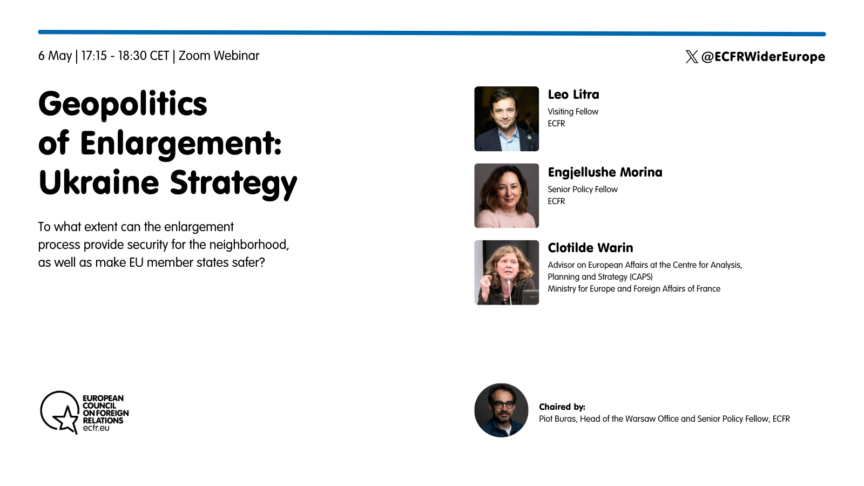
This webinar will discuss current revisions of the EU approach to enlargement policy and the security implications for Ukraine and the neighborhoods
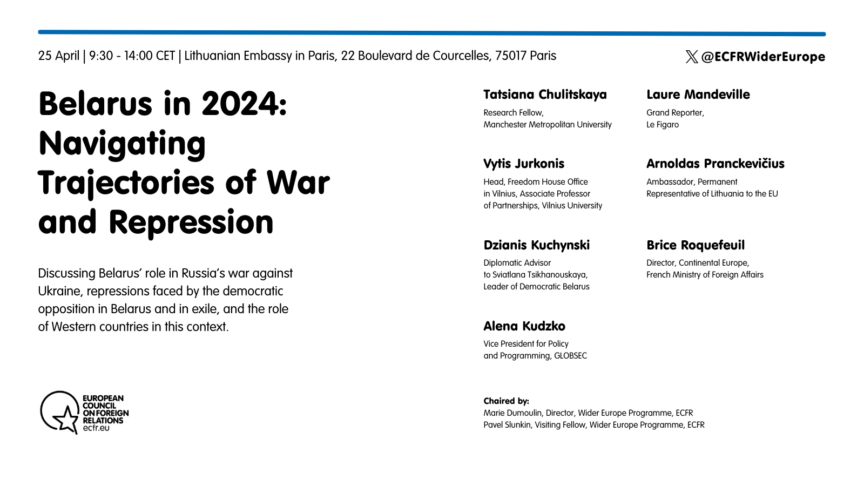
This event will discuss Belarus’ role in Russia’s war against Ukraine and the repressions and threats faced by the democratic opposition in Belarus and in exile. It will also explore possible actions by Western countries in this context
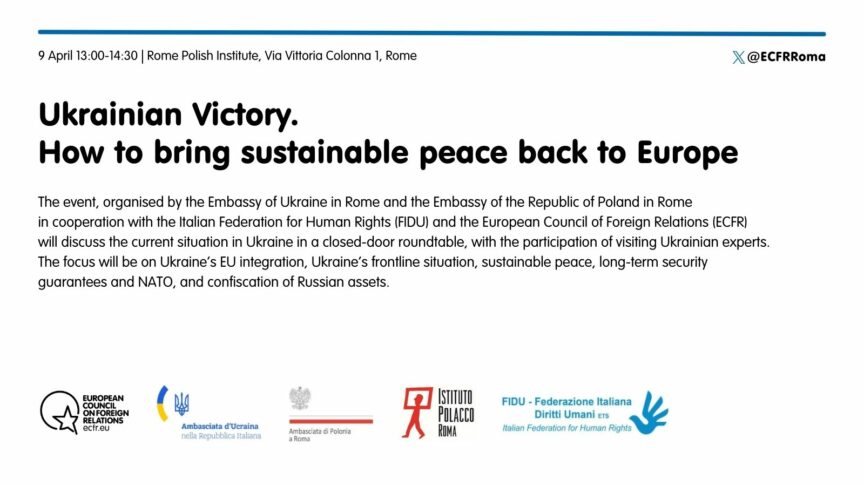
The event, organised by the Embassy of Ukraine in Rome and the Embassy of the Republic of Poland in Rome in cooperation with the Italian Federation for Human Rights (FIDU) and the European Council on Foreign Relations (ECFR) will discuss the current situation in Ukraine in a closed-door roundtable, with the participation of visiting Ukrainian experts
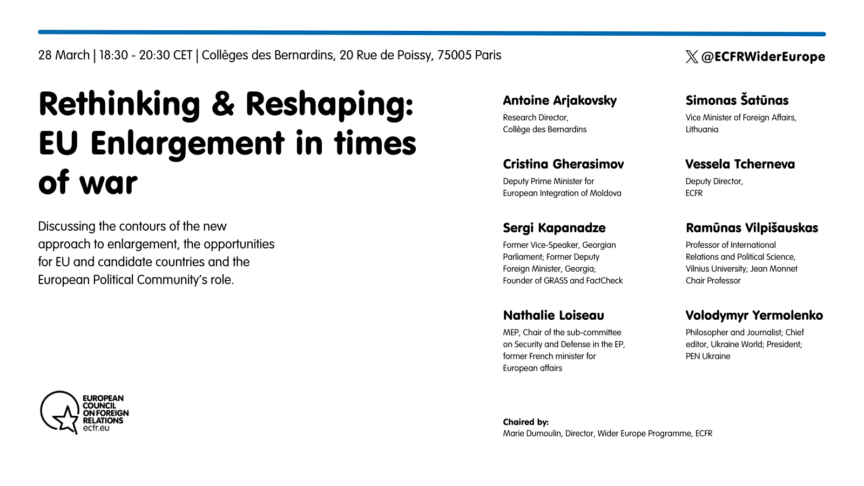
Russia’s war against Ukraine has prompted European policymakers to rethink their approach to enlargement. What form does this new approach take, what are the opportunities for EU and candidate countries, and what is the European Political Community’s role?